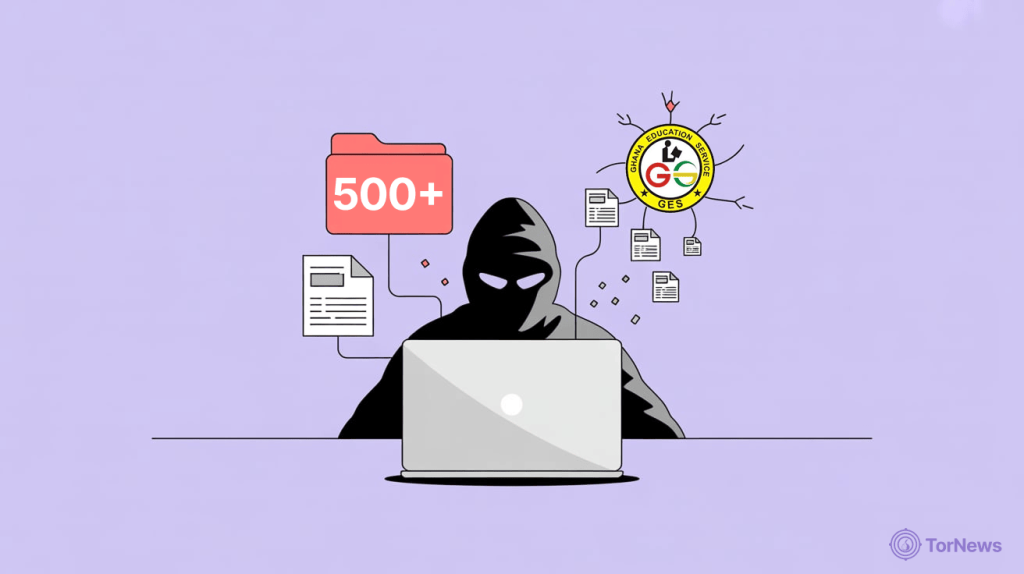-
A significant cyber breach has exposed the login credentials of more than 500 employees from Ghana’s public education institutions on the dark web.
-
The National Cyber Security Emergency Response Team discovered over 5,000 stealer logs in a surveillance operation, with more than 1,000 already being sold.
-
The Education Ministry is updating its ICT policy and putting together a special Computer Emergency Response Team just for the education sector.

Cyber threats are getting worse all over Africa. New reports confirm a major breach within Ghana’s education sector. The incident highlights a wider regional security crisis.
Staff Credentials Found on the Dark Web
Ghana’s education sector is in real trouble when it comes to digital security. The National Cyber Security Emergency Response Team just found something pretty shocking: 505 employee credentials from public institutions have ended up on the dark web.
And that’s just a slice of the problem. Since January, the team has tracked down over 5,000 stealer logs while keeping watch. Right now, more than a thousand logs packed with stolen data are already up for sale online. This isn’t just a single country issue (Ghana in this case). It’s a global criminal ecosystem. A similar investigation in the UK recently uncovered over 1,800 stolen bank cards for sale on the dark web, which highlighted the massive scale of this underground economy. So this clearly tells us there’s a thriving black market for this kind of data.
Education Minister Haruna Iddrisu talked about all this during National Cybersecurity Awareness Month in Accra, though Professor Diyawu Mumin spoke on his behalf. The Minister didn’t sugarcoat it. This breach just proves how exposed schools are to hackers.
He pointed out that the education sector is an easy target because it’s sitting on loads of sensitive personal data. Plus, he warned that threats like data theft and online scams are chipping away at public trust.
Efforts to Beef Up Defenses and Improve Security Expertise
The government isn’t just sitting back. The Ministry of Education is actually doing something about this. Right now, they’re reviewing their ICT in Education Policy and gearing up to roll out tougher cybersecurity rules.
One big move? They’re setting up the Education Sector Computer Emergency Response Team, EduCERT. This group’s job is simple: keep the education sector safe from digital threats.
People at GTEC and the Cyber Security Authority aren’t mincing words – digital safety has reached a point of no return; it’s a requirement today. There is a call for more investment, not just in the protection of schools and universities, but in developing home-grown talent in cybersecurity as well.
The digital future of Ghana depends on this, and the fight to secure it has begun.
New SIM Card Data Breach Triggers Alarm in Sahel Region
Over in the Sahel, there’s a whole other problem brewing. Turns out, some investigators just found out about what looks like a major data leak with Orange SIM cards.
Armed groups are supposedly using this stolen data. The report claims insurgents got their hands on sensitive info—where people are, where they’re going, even who they talk to. That kind of data lets them plan attacks with scary accuracy.
Orange, the French telecom giant says there’s been no breach. They insist their systems are secure. Still, security analysts aren’t convinced. Even a tiny leak in a place like the Sahel can cause chaos. In these conflict zones, information is as deadly as any weapon.
Armed groups are getting smarter, using digital clues to coordinate attacks. It’s a harsh new reality: in the Sahel, your phone might put you in danger. The line between staying connected and staying safe is barely there.
A Continent Under Digital Fire
This breach is not an isolated event. It’s part of a bigger, worrying pattern across Africa. Check Point Research just laid it out: Africa now tops the global charts for cyberattacks.
In September alone, organizations here dealt with an average of 2,902 attacks every week. That’s way higher than the worldwide average of 1,900. The main targets? Telecoms, government offices, and consumer goods companies. Globally, education faces the most attacks.
Lorna Hardie from Check Point points to new tech as a big reason. She asserts that generative AI has enabled cybercriminals and other bad actors to attack in smarter and more damaging ways, which is both easier and cheaper for them to implement. However, law enforcement is also adapting. In a significant recent operation, the FBI successfully took down several prominent dark web platforms linked to a massive Salesforce user database heist, demonstrating a growing counter-offensive against these digital threats. The stakes continue to rise.